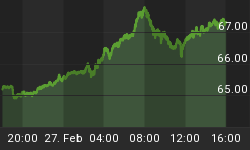Last year, president Obama visited GE's 106-year-old Waukesha, Wisconsin plant.
At the plant, GE builds large piston engines for power and oilfield use that run on natural gas or methane from landfills.
President Obama called the plant "a model for the country."
This week, GE announced that it will move production to Canada. The move will cost the US 350 manufacturing jobs.
Is Obama's "model" the correct one for the US?
Placing the Blame
Some place the blame for the Manufacturing Move on export financing.
In its latest salvo aimed at persuading Congress to renew the U.S. Export-Import Bank's charter which expired in June, GE will invest $265 million in a new state-of-the-art manufacturing plant at a Canadian location yet to be determined.
In exchange for moving the production from Waukesha, Wisconsin, Export Development Canada will provide financing support for a range of future products, including some still made in the United States.
The announcement stands in sharp contrast to a 2014 visit to the site by President Barack Obama, in which he touted its worker training program as "a model for the country."
"I'd say the workers at Waukesha are the real world casualties in the right-wing fight to close the EXIM Bank," said Frank Larkin, a spokesman for the International Association of Machinists, which represents plant workers.
In recent weeks, GE has announced several deals to locate thousands of new jobs out of the United States following EXIM's closure and to access government export credit from the United Kingdom, France, Hungary and China.
GE Vice Chairman John Rice told Reuters that foreign export credit agencies are "rolling out the red carpet" for the industrial conglomerate, more than tripling the export financing capacity it received under EXIM.
GE Debunks EXIM Theory
GE says those engines are not typically sold with EXIM financing, so let's look elsewhere for the reason. What about the dollar?
Canadian Dollar 2003-2015 Round Trip

The Canadian dollar, frequently referred to as the "Loonie" because of a loon image on a coin, recently had as much as a 10% premium to the dollar. Now the Loonie rests with a 25% discount to the dollar.
Corporate Income Tax to Blame?
Republican Representative James Sensenbrenner, who represents Waukesha and opposes EXIM "in its current form," said in a statement that the manufacturing move was a "sober reminder of the urgent need to stay competitive in the global marketplace" and called for lower corporate tax rates."
GE Pays No Corporate Income Tax
Amusingly, 15 Fortune 500 companies paid no federal income tax on $23 billion in profits in 2014, and they paid almost no federal income tax on $107 billion in profits during the past five years.
Yep, GE was one of those companies.
CBS, General Electric, Interpublic Group, JetBlue Airways, Mattel, Owens Corning, PG&E, Pepco Holdings, Priceline.com, Prudential Financial, Qualcomm, Ryder System, Time Warner, Weyerhaeuser and Xerox all paid no corporate income tax because they move operations and manufacturing to places where foreign income tax collection is low and export tax credits high.
Can corporate income tax be a problem when GE paid none?
Actually, yes.
Right now, the US practically begs corporations to move overseas via high tax rates coupled with numerous foreign loopholes including deferred taxes on investments and profits overseas. Every few years, Congress floats a "repatriation" tax holiday in which businesses bring the cash back to the US tax free.
Mish's Model vs. Obama's Model
Rather than close loopholes like president Obama proposes, I have a better idea: Set the corporate income tax to a flat 0% in the US and something above 0% on US corporate production and profits outside the US.
Watch the jobs come back home in a jiffy.
On a smaller scale, Illinois needs to learn the same lesson. For discussion of the sorry state of Illinois, please see ...
- Get Me the Hell Out of Here
- Chicago Tax Collector Hath Arrived With Massive Tax Hike: Emanuel Says "No Stone Unturned ... Not Done Yet"
- Chicago PMI Unexpectedly Dives to Negative Territory















